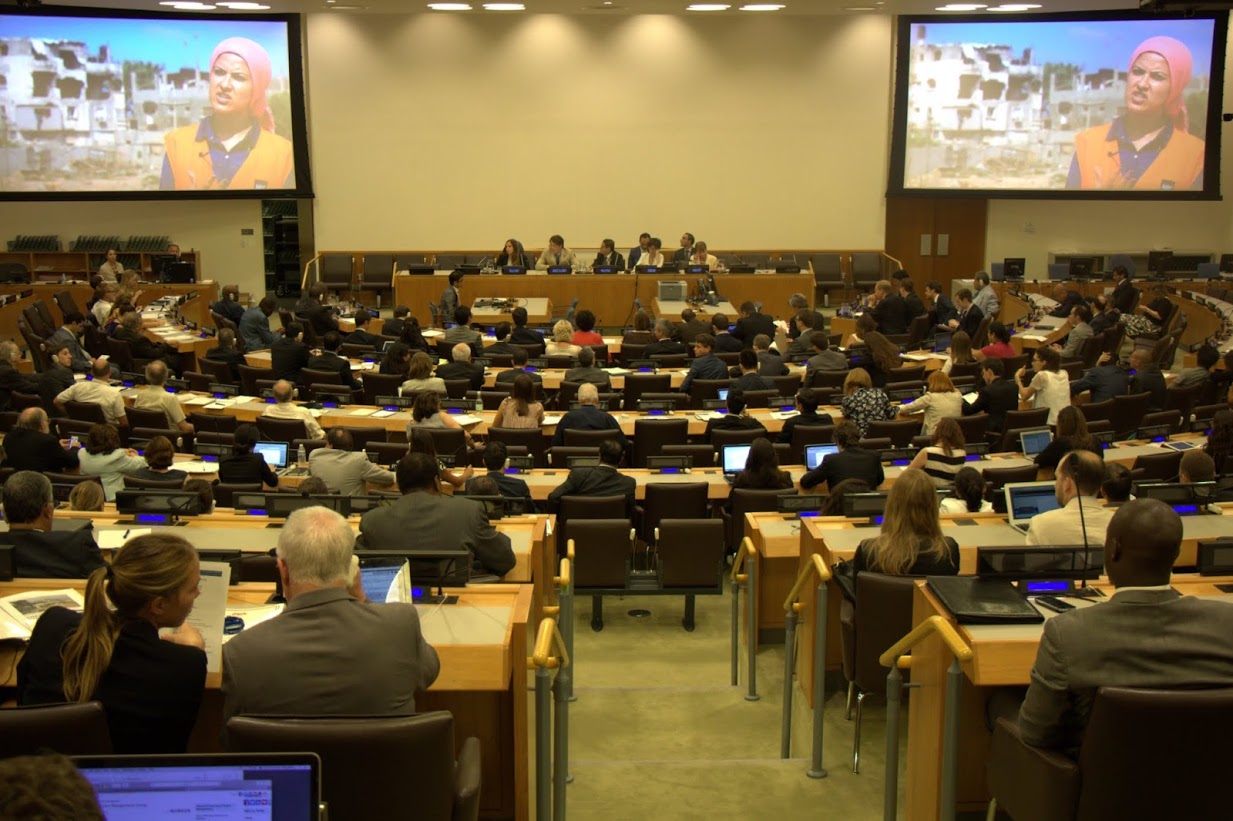For the first time since 1997 and just the second time ever, the Security Council held an Arria-Formula meeting focusing specifically on the issue of Palestine. Co-sponsored by the Permanent missions’ of Malaysia and the Hashemite Kingdom of Jordan, with assistance from the Israel-Palestine NGO Working Group, the meeting: "Reflections One Year Later and Charting a New Course for Gaza" featured briefings from speakers from civil society and academia, and was well attended by Council members and the UN community alike.
Security Council member states were largely represented at the highest level, and were constructive in their response to the four speakers' testimonies. Many member states welcomed the convening of the Arria-Formula Event, and issued their support for new Security Council initiatives that might arise. There was a general agreement that the current situation in Gaza is unsustainable and must be alleviated, with interventions focusing on the need to lift the blockade, for donor's to fulfil aid pledges, and for actors to ensure that steps are taken to prevent future hostilities.
QUNO has been an active member of the Israel-Palestine NGO Working Group since its founding in 1999. The working group is a coalition of organizations that have meet to share information and advocate for a just peace in Israel and Palestine.

Humanitarian Challenges in Myanmar: Navigating Conflict and Crisis
On 9 July, the Quaker United Nations Office hosted a private briefing on Myanmar’s humanitarian crisis in the aftermath of the devastating 7.7 magnitude earthquake that struck on 28 March 2025. At Quaker House, Gum San Nsang, Secretary of the Kachin Political Interim Coordination Team, briefed UN diplomats. With the monsoon season threatening to worsen the humanitarian crisis, he emphasized the need for the international community to address aid distribution issues, reminding them that “each day later is a day worse than before.” In his remarks, Gum San noted that the distribution of humanitarian assistance has been exacerbated by the dwindling control of the military junta that seized control during a coup in 2021. He explained that the military has prevented aid from reaching parts of the country not under its control, while diverting aid to its own stockpiles. Beyond the focus on humanitarian issues, Gum San also addressed the ongoing conflict situation between the military and armed resistance groups. He highlighted that the struggle to control the mining of rare earth minerals represents a major driver of conflict, especially in northern Myanmar. Currently, the UN’s Office of Coordination of Humanitarian Affairs (OCHA) estimates that 20 million people, over one […]






